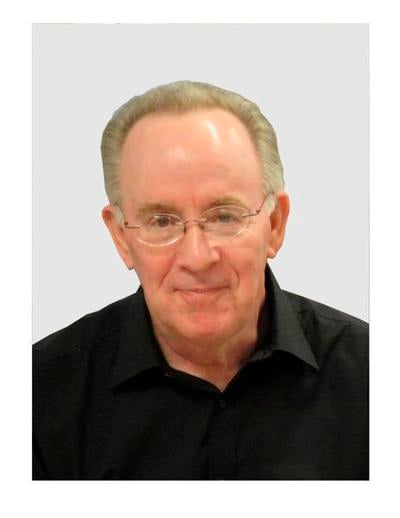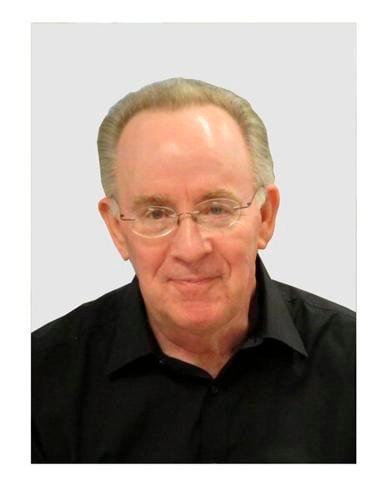Just over 35 years ago, Neil Postman wrote a book entitled "Amusing Ourselves To Death." In 1985, television was the dominant medium, personal computers were in their infancy, and smart phones didn’t exist. George Orwell’s dark vision of "1984" had just passed. Less well-known was Aldous Huxley’s "Brave New World."
Orwell had warned of Big Brother’s oppression; Huxley didn’t think Big Brother was necessary to deprive people of their autonomy, maturity, and history. Where Orwell feared books being banned, Huxley feared that there would be no reason to ban a book, for there would be no one who wanted to read one, that “truth would be drowned in a sea of irrelevance.”
Postman’s main idea was that our culture was undergoing a vast shift from centuries of the “magic of writing” to the magic of electronics, that television not only dominated other media, it was replacing them. While most applauded the advent of cable and multiple networks, Postman was lamenting the extent to which “much of our public discourse has become dangerous nonsense.” Let’s add commercial communications satellites, personal computers, and smart phones, and see if what Postman feared about television continues in this century.
Three areas where these electronic media have impacted us are the news business, religion, and education. Postman saw clearly that these three areas were becoming entertainment, i.e., amusement, to their great detriment.
No one doubts that the news business recast itself as entertainment. We have more news channels instantly accessible than ever before. Multiple electronic news outlets demand competition for ratings (as CNN is painfully aware). And, the news industry has created programs for “news junkies” with an insatiable appetite for clever, humorous, and hypercritical news entertainment, delivered by a plethora of experts and pundits on endless news shows.
Once news (and politics) becomes entertainment, it ceases to be real news; instead, it is “material” for comment. What kind of comment depends on the political leanings of the network. One can find the desired slant to match one’s own taste fairly easily. Newsmakers naturally appear on talk shows which favor their views.
It’s confusing when newsmakers cross over to television entertainment, such as The View and The Tonight Show-type talk shows, for free exposure. One minute we’re talking serious topics with the next President or Vice-President, followed by a segment on drag queens. Both are entertainment. Add immediate accessibility via computers, You-Tube, and smart phones, and the impact on the “news business” is tremendous. Not in a positive way, unless you’re counting dollars. It’s nothing new. In 1966, Ronald Reagan said “Politics is just like show business,” and went on to prove his point in 1980.
The eighties were notable for the popularity of religion on television. Not just sermons or church services, but religion as in television personalities with a spiritual dimension. Pat Robertson’s 700 Club kept the viewer engrossed with a variety show approach: interviews, singers, and human-interest stories.
Jimmy Swaggart, Oral Roberts, Jerry Falwell, Robert Schuller, and Jim Bakker all succeeded in offering religion as entertainment. One might notice the absence of ritual, dogma, tradition, theology, and sacred atmosphere on most shows, where “the preacher is tops, and God comes out as second banana,” in Postman’s words.
Postman’s opinion was that the characteristics of television (add today’s video, zoom, and streaming) converge to make authentic religious experience impossible, since the activities in one’s living room are usually the same whether a religious program is being presented or “The A-Team.”
Postman continued “the television screen itself has a strong bias toward a psychology of secularism. The screen is so saturated with memories of profane events, so deeply associated with the commercial and entertainment worlds, that it is difficult for it to be recreated as a frame for sacred events.” Remember that he was writing before “adult entertainment” was generally available in every home. Time will tell if religion should compete in an entertainment venue.
The third area television (and sister screens) has impacted is education, or as Postman puts it, “teaching as an amusing activity.” In 1969 Sesame Street aired, and children raised on TV commercials loved it. So did parents, who justified their kids watching television that was “good for them.” Sesame Street solved the problem of teaching American kids how to read, and encouraged them to love school. Actually, young kids loved school if it was like Sesame Street, and other ensuing entertaining learning programs.
Learning via screen is now entrenched in colleges and adult learning, and widespread in schools. The philosophy behind learning via television is that learning must be entertaining and fun. Dewey never said that. For children (or adults) to be educated, it helps if they are interested, emotionally secure, and have a teacher who cares, but entertainment isn’t essential.
Children learned for centuries without being amused. Indeed, learning could be characterized as long hours of hard work. Is today’s generation, beneficiaries of over a half century of television and other screens, better educated, better informed, better functioning, and better citizens?
News is not entertainment, or often even important. Authentic religion is not concerned for our amusement. Education doesn’t need to be fun; television is not a real teacher. And yet here we are, viewing images far more than reading printed words. Screen time is a given in today’s world. Will we master screens or will they master us? Look around. It’s a question that’s answered itself, as we amuse ourselves.
—
Gene G. Blair, a resident of Huntsville for 41 years, is retired from the Criminal Justice Center at SHSU, and also retired from the U.S. Army. He is a director on the executive board of CASA of Walker, San Jacinto, and Trinity counties.

















Commented
Sorry, there are no recent results for popular commented articles.